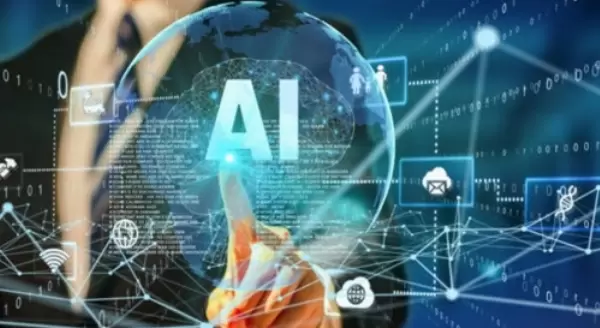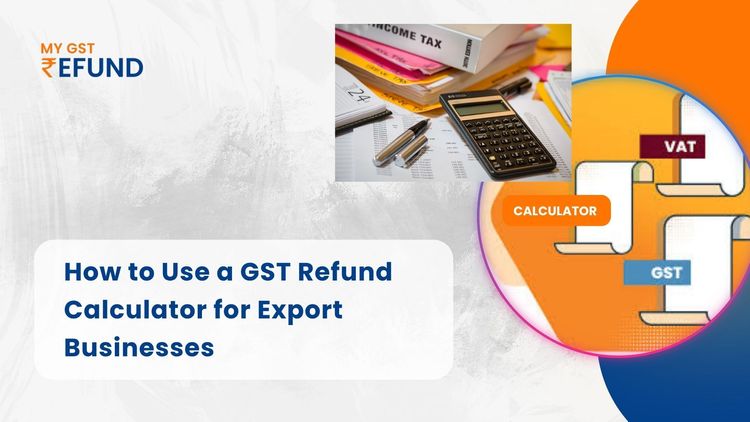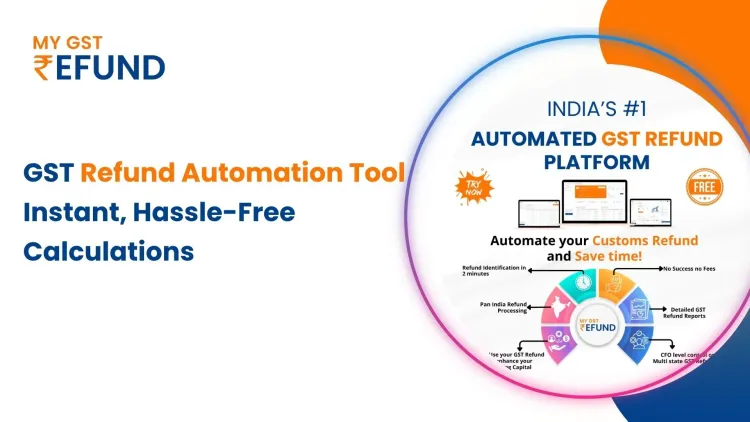AI can replace auditors and accountants says Union Finance secretary
Published on: Tue Sep 26 2023
Will AI Replace Auditors and Accountants? Exploring the Future of Automation in Financial Services.
As it is common in the present era, everything keeps changing rapidly due to technological advancements, so that different industries may be transformed through artificial intelligence (AI), including the finance industry. For a long , there has been a debate about whether they are going to lose their jobs to artificial intelligence (AI) or remain safe from it. This debate was revived recently when Union Finance Secretary and senior IAS officer T.V. Somanathan commented on how artificial intelligence could take over auditor and accountant roles.
Somanathan made such a statement on Saturday, pointing out that there were deep economic impacts associated with AI-based designs. Numerous studies have found that integrating AI can facilitate far greater efficiency and effectiveness within automated business processes. As automation continues to make its way into the financial services industry, we can anticipate major changes in auditing and accounting. But what does this translate into for those who work within these sectors? Is it possible that AI will actually replace audit professionals in the long run or simply work alongside them?
The Function of AI in Accounting and Auditing
In its most basic sense, artificial intelligence means that machines are able to accomplish tasks that are mostly valid for humans. Learning from experience, recognizing patterns or even making decisions are among these tasks. In the case of auditing and accounting, such an application can automate repetitive tasks, analyze huge data sets, and make insights faster and more accurately than people do.
- Automating routine tasks: AI could be used to automate routine tasks like data input, invoice processing, and reconciling financial statements. These activities, which usually take up substantial amounts of time with accountants, can be done much easier if powered by AI.
- Enhanced data analysis: AI can analyze large amounts of data in real time, picking out patterns and anomalies that human auditors would overlook. This is especially useful when it comes to fraud detection or compliance with regulations.
- Better decision-making: The speed with which AI processes and analyses data helps auditors and accountants make more informed decisions. With real-time understanding of trends as well as predictive analytics enabled by a system known as artificial intelligence, professionals can foresee possible risks or opportunities that may lead to improved business profitability.
- Reducing mistakes: One of the major benefits of applied artificial intelligence is its ability to reduce human error. In auditing and accounting, where precision is very important, AI may mitigate the risks of errors in financial reports and statements considerably.
The economic impacts of artificial intelligence in finance
AI’s economic effects in finance are staggering. According to Somanathan, this can make business processes more efficient and effective. Therefore, the economy will benefit from it before any other sector.
One of these sectors could be credit lending, boosted by artificial intelligence. In particular, with reference to India, Ai can be said to have potential for expanding credit lending opportunities (Somanathan). He stated that India’s private sector debt stands at about 55 percent while it exceeds 180 percent in China; if there’s an extra push, then India’s financial market would look like that, but it shouldn’t be taken literally either way. A combination of these two suggests that we need to increase our lending levels even up to 100-120% of GDP. Such an increase can help prompt investments and promote growth across the economy.
More access to credit poses challenges of non-performing assets (NPAs). Financial institutions can rely on AI to determine creditworthiness more accurately and detect potential risks at an early stage when using machine learning models. AI can help reduce bad debts and improve the banking sector's overall condition by analyzing historical data and identifying patterns.
The Impact on Employment: Will AI Replace Auditors and Accountants?
The question that arises then is whether there will be job losses as a result of the introduction of AI in auditing or the work of accountants. It is true that AI has some advantages in auditing and accounting, but there are fears that it will lead to job losses.
However, the answer is not easy. Much of this depends on how we define replacement versus augmenting human skills with technology (robotics). While some tasks may be automated using AI, it seems unlikely that auditors or accountants will disappear completely because they still require human judgment. Thus, it appears that replacing these specialists with machines will only happen incrementally over time until humans no longer act as accountants but rather as social scientists who use numbers as a means of communication.
1. Job Role Modification: As an AI takes control of redundant tasks, auditors and accountants must be capable of shifting into new roles that require more advanced skills. They may be responsible for activities such as interpreting AI-generated insights, giving strategic financial advice; or ensuring adherence to regulations. In future years, there is likely to be a rise in the demand for professionals who can work side by side with AI and use it effectively.
2. Growing Need for Competent Accountants: Somanathan predicted that the number of income taxpayers in India would continue rising steadily over the years at an annual rate. of 6-7 percent. This will mean a greater need for expert accountants capable of handling increasing amounts of financial information, thus ensuring compliance with tax legislation. Although tasks such as these can be facilitated by AI, human supervision will still play an instrumental role in maintaining accuracy as well as responsibility.
3. Emphasis on Creativity and Critical Thinking: It is true that AI does all sorts of calculations and detects various patterns in data; however, there are certain abilities related to creativity or critical thinking that are unique to everyone else except humans who work as auditors or accountants. The experts working in these fields ought to strive towards acquiring skills that cannot easily be mechanized, including resolving issues effectively, making moral choices, and imagining some scenarios.
4. Regulatory obligations: AI systems face the onus of conformity with already set rules on different jurisdictions. The task of upholding AI compliance with these regulations is not simple, especially in the finance sector, due to their high supervised levels.
5. Trust & Transparency: Trust in AI systems is crucial for their widespread adoption. Transparency, explainability, and the absence of bias are vital for AI systems developed by financial institutions, auditors, and accountants. Lack of trust may make clients and stakeholders hesitant to rely on AI-generated insights.
Challenges and Limitations of AI in Auditing and Accounting
The future of auditing and accounting will more than likely be hybrid as artificial intelligence (AI) evolves, where humans and professionals work with powered systems to achieve better results. This model draws from both sides, mixing speed like no other seen before by machines with human ingenuity.
AI as an Assistant: In this hybrid model, AI serves as an assistant to auditors and accountants, automating routine tasks and providing real-time insights. By utilizing such insights, professionals make more refined decisions while allocating their time to wider-value activities like strategic fiscal plans and advisory services.
Regulatory obligations: AI systems face the onus of conformity with already-set rules in different jurisdictions. The task of upholding AI compliance with these regulations is not simple, especially in the finance sector, due to their high supervised levels.
Trust & Transparency: Trust in AI systems is crucial for their widespread adoption. Transparency, explainability, and the absence of bias are vital for AI systems developed by financial institutions, auditors, and accountants. Lack of trust may make clients and stakeholders hesitant to rely on AI-generated insights.
The Future of Auditing and Accounting: A Hybrid Approach
The future of auditing and accounting will more than likely be hybrid as artificial intelligence (AI) evolves and humans and professionals work with powered systems. achieving better results. This model draws from both sides, mixing speed like no other seen before by machines with human ingenuity.
AI as an Assistant: In this hybrid model, AI serves as an assistant to auditors and accountants, automating routine tasks and providing real-time insights. By utilizing such insights, professionals make more refined decisions while allocating their time to wider-value activities like strategic fiscal plans and advisory services.
Continuous Learning and Adapting: AI systems will continue to evolve as they learn from fresh data and experiences over time. In this changing context, auditors and accountants need to update their skills regularly in order to keep pace with new technologies.
Human Surveillance: Even though there have been monumental advances in machine intelligence, human consciousness will always be crucial when it comes to conducting checks on the practices of finances. These professionals have to confirm that the insights produced by machines are correct and comply with both moral codes and the law.
Collaboration and Creativity: When used with auditing and accounting, AI provides a chance for working together and coming up with breakthroughs. With AI at hand, these experts can create new operational pathways and streamline processes, ensuring better financial outcomes for their clients as well as organizations in general.
Conclusion: Embracing Tomorrow’s Technologies
While AI replacing auditors or accountants is possible, it is not something we should worry about at this instant. In other words, artificial intelligence ought to be seen as equipment that could possibly augment the abilities of those associated with the deposition of monetary records. The use of automation in mundane chores, offering real-time data and enhancing decision-making processes is how AI can help auditors and accountants achieve more for their clients and businesses.
As pointed out by T.V. Somanathan, the Union Finance Secretary, AI has immense possibilities that can transform the financial sector and stimulate economic growth. However, such a transition will demand an appropriate equilibrium between automation and human control. Accountants and auditors who adopt artificial intelligence will be in a better position to succeed in the future of financial institutions.
At the same time, it is important for corporate business people in finance to keep themselves updated with what is going on in AI. It is thus important to think about how this technology can be used in order to improve their businesses. For instance, using machines for routine operations that need doing regularly might be one of these options, meaning routine activities will be performed by robots through intelligent programming, or, simply put, data scientists are able to use machine learning models that take note of different aspects so that they can give relevant advice, including things like investing. wisely and managing your portfolio. This will help them ensure that they remain pertinent and continue delivering value in the increasingly computerised universe
Also Read : Central Board Of Direct Tax[CBDT]
Related Posts





